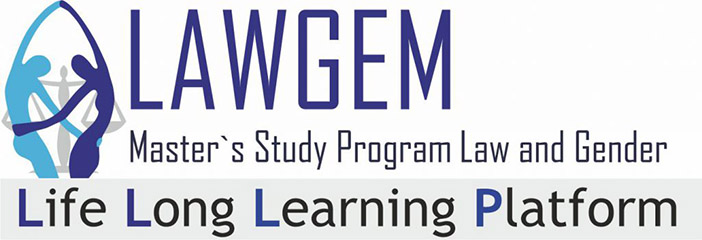Faculty of Law University of Belgrade in the cooperation with the OSCE Mission to Serbia organized the Spring School/Pilot Master – Law and Gender. This Spring School was based on the project LAWGEM and served as a kind of the pilot practicing of the future master`s study program Law and Gender. It covered all courses contained in this master`s study program curriculum, and the reading materials consisted to a great extent of the books published within the LAWGEM project. The School was organized in a hybrid form – in person at the Faculty of Law University of Belgrade and online, with 69 participants (students of undergraduate, master and PhD level), both from Serbia and other countries around the world (Albania, Belarus, Bosnia and Herzegovina, Brazil, China, Croatia, France, Germany, India, Iran, Italy, Montenegro, Russia and Vietnam). It is certain that participants of this School have gained valuable knowledge which will help them on their academic path and in their professional careers. On the other hand, the Spring School represented an excellent preparation of lectures and pedagogic experiences of the scholars from the University of Belgrade Faculty of Law for the future conducting the master’s study program Law and Gender.
Gender Competent Family Law course was held by Dr. Zara Saeidzadeh, Associate Professor Letizia Coppo and Teaching Assistant Ivana Barać. The first lecture was given by Zara Saeidzadeh on the subject of Family: From a Gender Perspective. Dr. Saeidzadeh focused on discussing the term of family policy and elaborated that the main areas covered by family policy are childcare, reproduction and sexuality, economy and domestic violence. She further dealt with the Nordic approach to family policy and also underlined the positive effects of Swedish family policy (parental leave, parental benefits, etc.). Afterwards, she discussed the negative effects of the Swedish family policy, such as the boomerang effect in women’s participation in labour market, glass ceiling effect, inflexibility of childcare, reduction in fertility rate, etc.
The second lecture was given by Prof. Dr. Letizia Coppo on the subject of Gender Perspective of Married and Un-married Couples. She firstly focused on the importance of gendered reading of family law and underlined that gender-sensitive family law should fight against the problem of arranged or forced marriages and for family pluralism. Moreover, she dealt with the question of unequal treatment that unmarried couples are facing and pointed out that such inequality can result into an imbalance of bargaining power. She stressed that married couples face unequal treatment as well, for example, when speaking about the distribution of marital property and post-divorce maintenance and continued by discussing about different approches in this regard.
The final lecture on the subject of Gender Perspective and Domestic Violence was given by Ivana Barać. She started off by explaining that the family is neither patriarchal nor emancipated, although it is based on partnership, equality, autonomy of each family member rather than on hierarchy, dependence, obedience, subordination and that as a result domestic violence often occurs at crossroad and outburst of these conflictual tendencies. She gave several examples of potential scenarios in which domestic violence can occur and discussed with students what could be the end result of each of the given scenario. After that she focused on the ECtHR case law and underlined the importance of it for a comprehensive and systematic fight against violence.
Gender Competent Family Law 1: Family from a Gender Perspective
Gender Competent Family Law 2: Married and Unmarried Couples, Consequences of Divorce and Separation
Gender Competent Family Law 3: Family Violence

